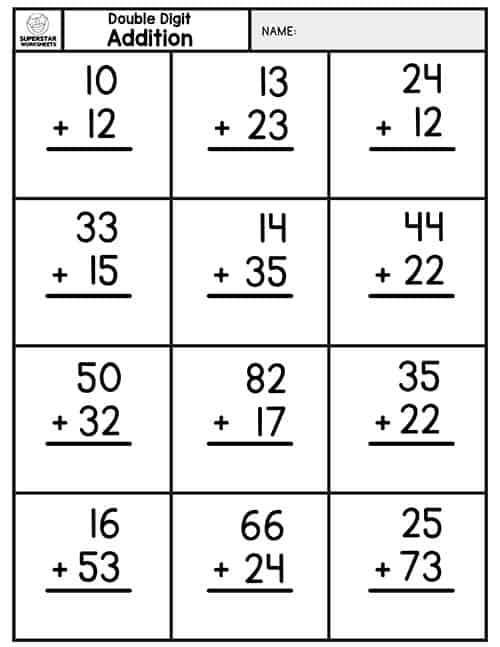Acceptance and Commitment Therapy Worksheets for Mental Wellbeing
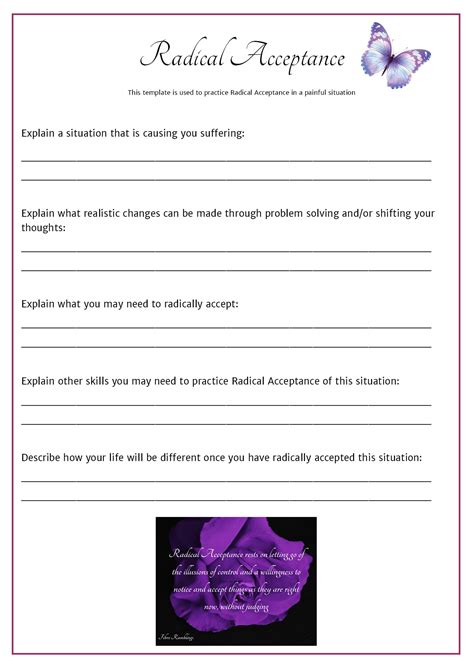
Introduction to Acceptance and Commitment Therapy (ACT)
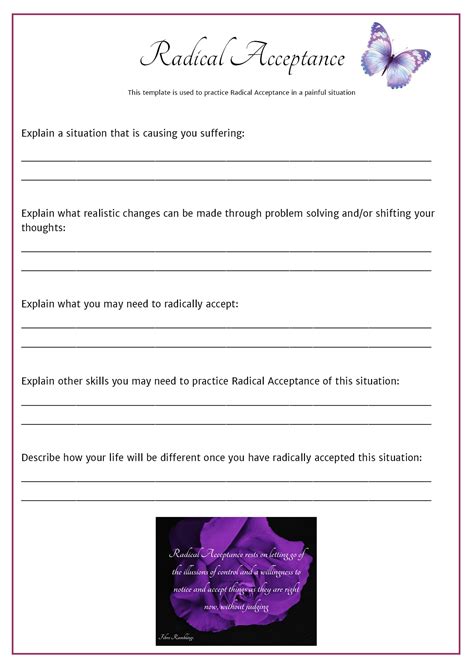
Acceptance and Commitment Therapy (ACT) is a type of psychotherapy that focuses on helping individuals develop psychological flexibility and acceptance of difficult emotions, thoughts, and experiences. Developed by Steven C. Hayes and others, ACT aims to promote mental wellbeing by encouraging individuals to cultivate a mindful and non-judgmental attitude towards their experiences.
Key Principles of ACT
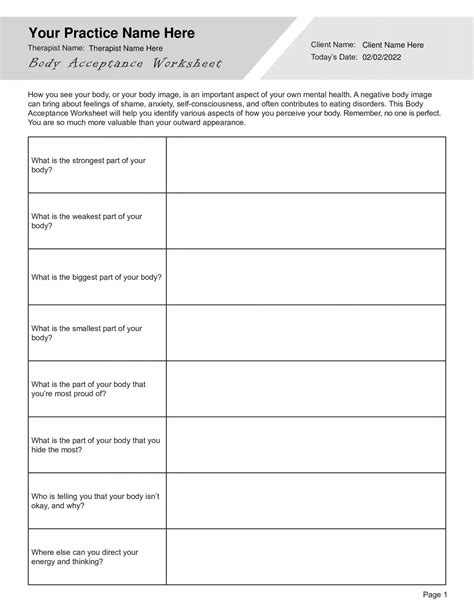
ACT is based on six core principles:
- Acceptance: Encouraging individuals to acknowledge and accept their thoughts, emotions, and experiences in the present moment, without judgment or resistance.
- Cognitive Defusion: Helping individuals to detach from their thoughts and see them as mere mental constructs, rather than reflections of reality.
- Being Present: Encouraging individuals to focus on the present moment and let go of regrets about the past or worries about the future.
- Self-as-Context: Helping individuals to develop a sense of self that is not defined by their thoughts, emotions, or experiences, but rather by their values and actions.
- Values: Encouraging individuals to clarify their core values and use them as a guide for making decisions and taking action.
- Committed Action: Helping individuals to take action towards valued life goals, even in the presence of difficult emotions or thoughts.
ACT Worksheets for Mental Wellbeing
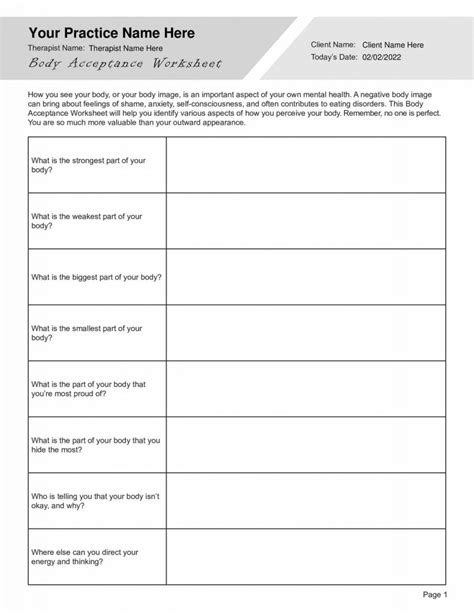
Here are some ACT worksheets that can help you cultivate mental wellbeing:
1. Values Clarification Worksheet
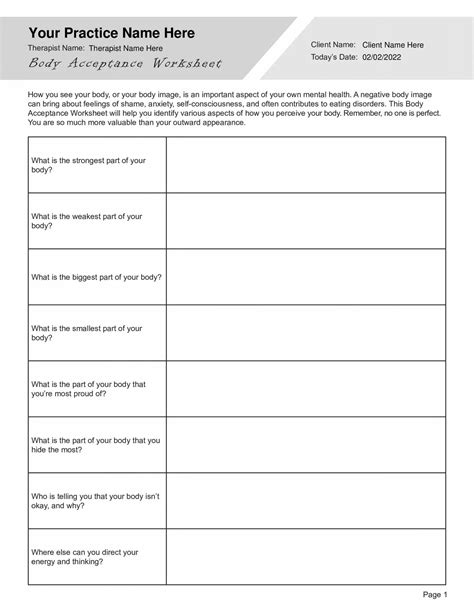
| Value | Why is this value important to me? | How can I take action towards this value today? |
|---|---|---|
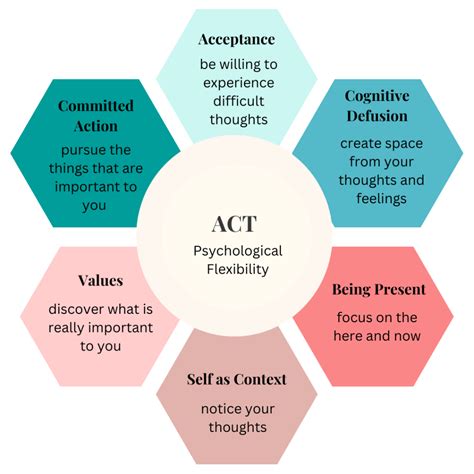
📝 Note: Take your time to fill out this worksheet and reflect on what is truly important to you. Your values should be personal and meaningful to you.
2. Thought Record Worksheet
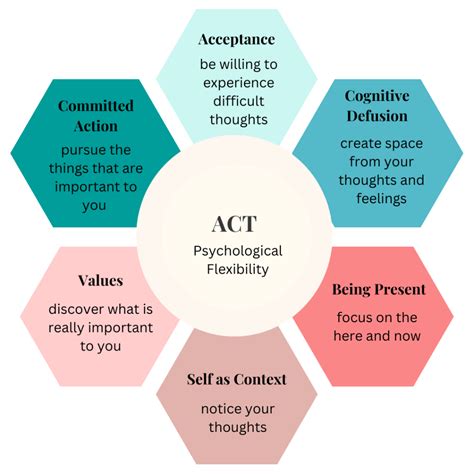
| Thought | Emotion | Physical Sensation | Action Taken |
|---|---|---|---|
📝 Note: Use this worksheet to track your thoughts, emotions, and physical sensations. Notice how they change over time and how you can take action to manage them.
3. Mindfulness Exercise Worksheet
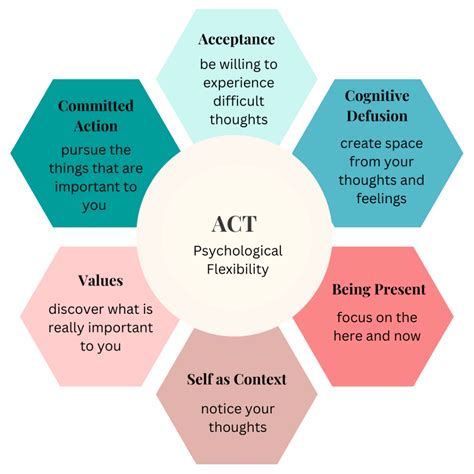
| Body Part | Sensation | Emotion | Thought |
|---|---|---|---|
| Feet | |||
| Legs | |||
| Arms | |||
| Hands | |||
| Face | |||
| Head |
📝 Note: Use this worksheet to cultivate mindfulness and presence. Pay attention to your physical sensations, emotions, and thoughts without judgment.
4. Self-Compassion Exercise Worksheet
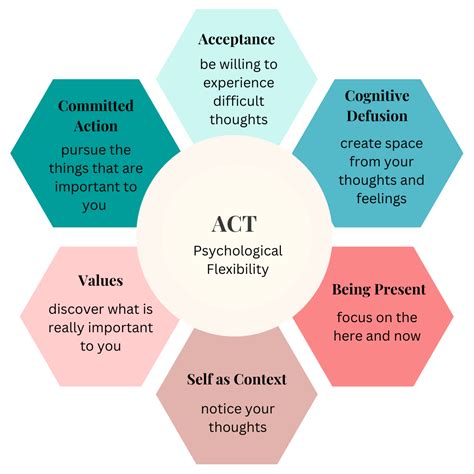
| Self-Critical Thought | Kind Response | Physical Sensation | Emotion |
|---|---|---|---|
📝 Note: Use this worksheet to practice self-compassion and challenge self-critical thoughts. Treat yourself with kindness and understanding, just as you would a close friend.
Conclusion
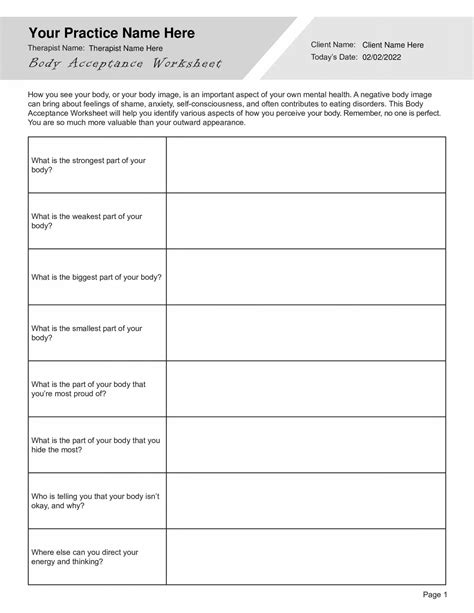
ACT worksheets can be a powerful tool for cultivating mental wellbeing. By practicing acceptance, cognitive defusion, being present, self-as-context, values, and committed action, you can develop greater psychological flexibility and improve your overall mental health. Remember to be patient and compassionate with yourself as you work through these exercises, and don’t hesitate to seek support from a mental health professional if you need additional guidance.
What is Acceptance and Commitment Therapy (ACT)?
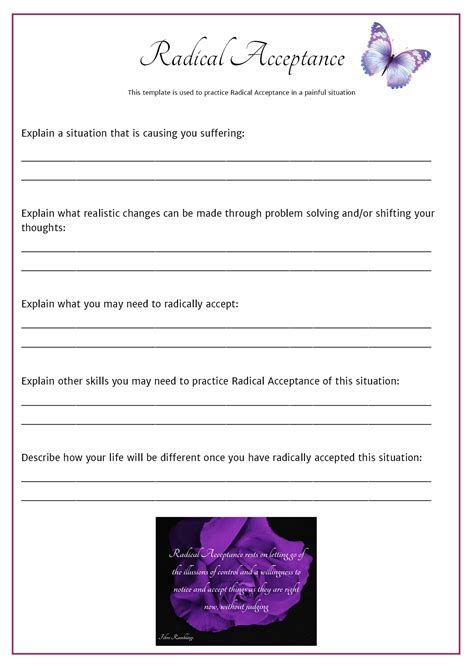
+
Acceptance and Commitment Therapy (ACT) is a type of psychotherapy that focuses on helping individuals develop psychological flexibility and acceptance of difficult emotions, thoughts, and experiences.
What are the key principles of ACT?
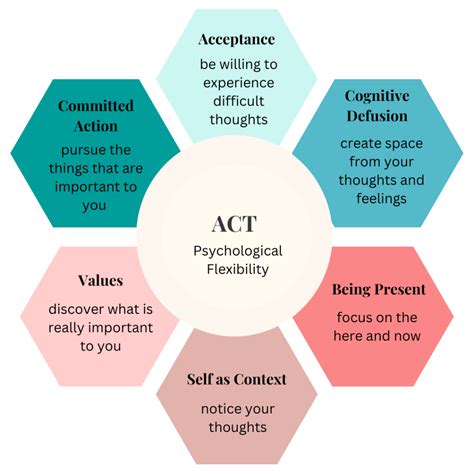
+
The key principles of ACT are acceptance, cognitive defusion, being present, self-as-context, values, and committed action.
How can I use ACT worksheets to improve my mental wellbeing?
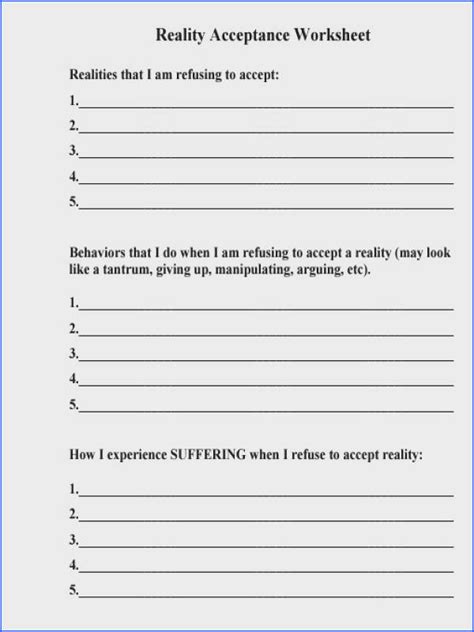
+
ACT worksheets can help you cultivate mental wellbeing by promoting acceptance, cognitive defusion, being present, self-as-context, values, and committed action. Use the worksheets provided in this article to get started.
Related Terms:
- Acceptance therapy worksheets pdf
- Acceptance therapy worksheets pdf free
- Acceptance therapy worksheets free
- Acceptance therapy worksheets for adults
- Acceptance worksheets PDF
- acceptance and commitment therapy homework



